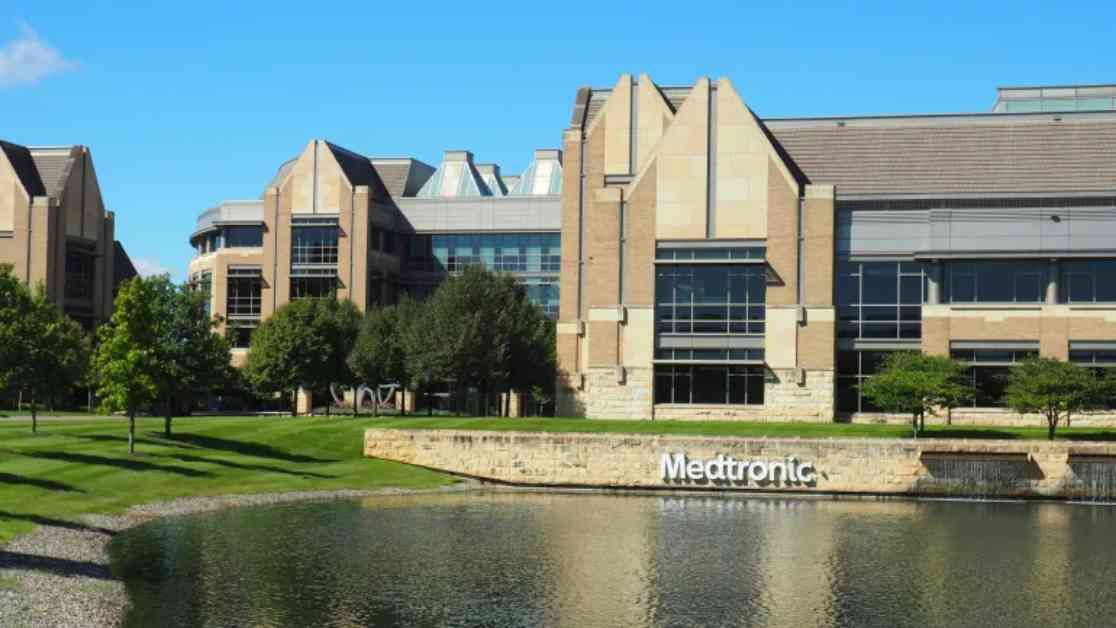Medtronic, a leading medical technology company, announced on Monday that it has received approval from the Food and Drug Administration (FDA) for deep brain stimulation (DBS) technology that can be implanted while the patient is under general anesthesia. This groundbreaking approval marks a significant advancement in the field of neurosurgery, providing patients with an alternative option for undergoing DBS procedures.
Traditionally, surgeons have performed DBS procedures while the patient is awake. However, recent studies have shown that there may be benefits to putting patients to sleep during the procedure. Medtronic is the first company to receive FDA approval for offering DBS surgery while a patient is asleep or awake, positioning itself as a pioneer in this emerging field. While U.S. surgeons have used DBS devices off-label in asleep patients for years, this official approval from the FDA opens up new possibilities for patients seeking treatment for conditions such as epilepsy and Parkinson’s disease.
Medtronic’s brain modulation business has reported low double-digit growth year over year, with its most recent earnings report showing promising results. CEO Geoff Martha highlighted the strong uptake of Percept RC with Brainsense technology, a rechargeable device that captures brain signals and delivers stimulation. This technology, combined with the ability to perform DBS surgeries while patients are asleep, sets Medtronic apart from its competitors and positions the company as a leader in the DBS market.
Amaza Reitmeier, Medtronic’s general manager of brain modulation, expressed excitement about the FDA approval for asleep DBS, calling it a “significant advancement in our surgical offering.” This approval not only distinguishes Medtronic from other companies like Abbott but also opens up new opportunities in the DBS market. As interest in asleep DBS continues to grow, Medtronic is well-positioned to meet the needs of patients and surgeons seeking innovative treatment options.
The benefits of asleep DBS have become increasingly apparent in recent years, with surgeons citing shorter procedures and improved patient comfort as key advantages. A study published in the Journal of Neurosurgery examined data from 103 patients who underwent asleep DBS at Brigham and Women’s Hospital from 2015 to 2019. The authors of the study noted the distinct advantages of asleep DBS but also highlighted situations where the traditional awake approach may be preferable.
One of the challenges of asleep DBS is the need for specialized equipment and the use of an intraoperative scanner, which may not be readily available in all medical facilities. Additionally, asleep DBS does not allow for intraoperative stimulation to confirm target placement, which can be a critical step in ensuring successful outcomes. Clearpoint Neuro, a company that provides the neuronavigation system used at Brigham and Women’s Hospital, has played a key role in supporting surgeons who choose to perform asleep DBS procedures.
In a statement, Clearpoint CEO Joe Burnett acknowledged the growing interest in asleep DBS among physicians and patients, noting that different DBS companies are beginning to offer guidance on whether patients should be awake or asleep during the procedure. This shift in approach reflects the evolving landscape of neurosurgery and the increasing emphasis on personalized treatment options for patients with neurological conditions.
As the field of DBS continues to evolve, Medtronic’s FDA approval for asleep DBS represents a major milestone in the treatment of neurological disorders. By offering patients the option to undergo DBS surgery while asleep, Medtronic is paving the way for more personalized and effective treatment strategies. With its innovative technology and commitment to advancing patient care, Medtronic is poised to shape the future of neurosurgery and improve the lives of individuals living with epilepsy, Parkinson’s disease, and other neurological conditions.













